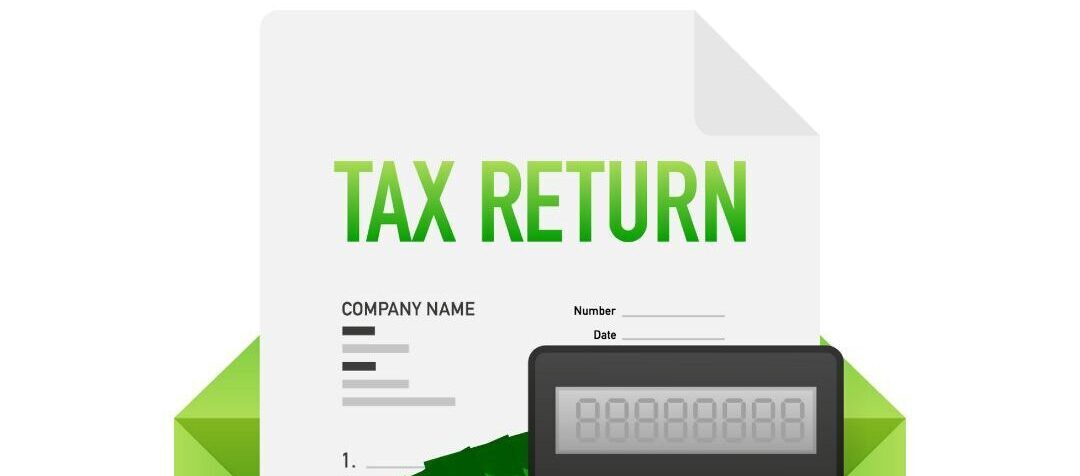- Home
- Start A Business
- Registration
- GST Registration In Banglore
- Trademark Registration In Bangalore
- Import Export Registration
- Shop Establishment Registration
- MSME Registration Consultants in Bangalore
- Public Limited Company Registration in Bangalore
- Employee Provident Fund Registration in Bangalore
- FSSAI Registration Consultants in Bangalore
- Company Secretary Registration in Banglore
- Manage
- Outsource
Income Tax Lawyer


Income tax Act, 1962 in India
Thinking of – “Income tax lawyer near me?” Then Maximize your understanding of income tax with our comprehensive guide. In India, income tax is a direct tax levied annually, running from 1st April to 31st March. Discover the convenience of the government’s tax portal, www.incometax.gov.in, for effortless ITR filing and updates.
If your income exceeds Rs.2.5Lac per year or you’re seeking to reclaim excess TDS, filing taxes becomes mandatory. Gain benefits such as expedited home loans, business loans, and Visa procedures, all while ensuring compliance with the Act’s obligations.
For expert advisory services on income tax matters, look no further. Contact us today and navigate the intricate world of income tax seamlessly.
The income tax is a Direct tax to be collected from Individuals, businesses, and other persons, who have a net taxable income above the limit specified by the Government of India.

Since the income tax is a Direct tax net income, it mainly covers Five Heads of income, namely Income from Salary, Income from House, Capital Gain, Income from Business or Profession, Income from Other sources like Bank interest, dividends, etc.
The Income-tax Act, 1961, has come into force with effect from 1st April 1962. The Indian income-tax rules and regulations keep changing as each year’s finance bill is passed in Parliament.
From the introduction of the New tax system with effect from FY 2020-21, there are 2 systems are following, one is the Old Tax rate with investment and savings exemptions another one is the New Tax rate without any investments and savings.
For Individual Resident –
From the introduction of the New tax system with effect from FY 2020-21, there are 2 systems are following, one is the Old Tax rate with investment and savings exemptions another one is the New Tax
Income | Rate of Tax under Existing Regime for FY 22-23, 21-22) | New Regime Slab Rates for FY 22-23, 21-22) | ||
Individuals with age less than 60 years or HUF | Individuals with age 60years or more but less than 80 years | Individuals with age 80 years or more | Applicable for All Individuals or HUF | |
Rs 0.0 to Rs 2.5 Lakhs | NIL | NIL | NIL | NIL |
Rs 2,50,001 to Rs 3.00 Lakhs | 5% (tax rebate u/s 87a is available) | NIL | NIL | 5% (tax rebate u/s 87a is available) |
Rs. 3,00,001 to Rs 5.00 Lakhs | 5% (tax rebate u/s 87a is available) | NIL | ||
Rs. 5,00,001 to Rs 7.5 Lakhs | 20% | 20% | 20% | 10% |
Rs 7,50,001 to Rs 10.00 Lakhs | 20% | 20% | 20% | 15% |
Rs 10,00,001 to Rs. 12.50 Lakhs | 30% | 30% | 30% | 20% |
Rs. 12,50,001 to Rs. 15.00 Lakhs | 30% | 30% | 30% | 25% |
Exceeding Rs. 15 Lakhs | 30% | 30% | 30% | 30% |
| ||||
1. In Addition to basic Income Tax as discussed above , Followings are also to be taken care of, Surcharge | ||||
Rs. 50 Lakhs to Rs. 1 Crore | Rs. 1 Crore to Rs. 2 Crores | Rs. 2 Crores to Rs. 5 Crores | More Than 5 Crores | |
10% | 15% | 25% | 37% | |
– Health & Education Cess @4% | ||||
Tax rate For Business –
The Income tax rate is different for Businesses like Firms, companies, etc.
For Indian Companies (Domestic Company)
Where the Turnover is up to Rs.400 Crore, then the tax rate is 25%
Where the Turnover is more than to Rs.400 Crore, then the tax rate is 30%
Under section 115BAB, For the business, under manufacturing or production of any article or thing, from 31st March 2023 to 31st March 2024. The tax rate is 15%
For Partnership Firm.
For partnership firms tax rate is 30%
For Foreign Companies
For foreign companies, the normal tax rate is 40%, and their royalty payment, etc attracts 50%.
Thus, it helps greatly in securing help from an income tax lawyer near you.
Income-tax filings for individuals and business is free of cost.
Only the professionals who are assisting to file could be levied a fee for their services.
The First step to file for an income tax return is, log into Incometaxindia.gov.in
Select the Assessment year to be filed, and then the type of form to be filed, for example for salaries ITR 1, Enter the business income details, investments, exemptions, deductions details etc, as per the form specific as per applicable to business.
Once all the details are entered and validated, you can file your return online by verification through Aadar-based or DSC of the authorized person.
The income tax india provides access to file all the person’s income-tax return in online.
The person who is holding pan, must login to Incometaxindia.gov.in by using its pan and login credentials.
Choose the applicable form for tax filing
The ITR -1 for individuals who has an income upto Rs.50Lac
The ITR-2 for Individuals who has income from Capital Gain
The ITR-3 for Individuals who has income from Business
The ITR-4 for Individuals business income upto 50 Lac can use this to compute u/s 44ad 44ada
The ITR-5 for Trusts, Not-for profit business to be selected.
The ITR-6 for Companies Like, Private Limited Company etc to be selected.
The Income tax Filing process in India.
In India, the income-tax changeability is based on the residential status of the person and the income earned are matters.
The below are the main criteria for IT changeability in India.
- Net taxable exceeds the basic limit of Rs.5 Lac for Individuals and HUF
- To claim the income-tax refund
- Individuals holding assets in foreign
- If you have deposited Rs.1 cr and above
- If you have spent Rs.1 lac and above for foreign travel
- If your electricity consumption Rs.1 lac and above
- If your business turnover is more then Rs.60 Lac
- If gross receipt from the profession is more then 10 lac
- If tds and TCS is Rs.25,000 and above
- In the deposit of Savings bank is more then 50 Lac
- The Registered Companies, Business
The first step is to calculate your total income, deductions, and savings on the each header.
Summarize the total TDS as per the 26AS and tds certificate received.
Review the Annual information Information available in the Income-tax system
Login to the Income-tax system Incometax.gov.in
The next step is to choose the right form for filing and submit the details.
Benefits from ITR filings
as per Income-tax regulations, the personal income that exceeds the basic limit must file, however in other cases as per the criteria mentioned.
Below are the benefits.
- Easy to claim the TDS refund if any tax deducted over and above the taxability
- Loans from Banks can be arranged based on the ITR filings
- Any capital gain losses could be get adjusted in future income
- Quick visa process for foreign travels/ visits
- Avoid the penalty from Income-tax for compulsory filings.
Takeaway: The Income-tax Act is a direct tax, chargeable on the person’s net-taxable income. the Income tax rates keep changing for each year based on every year’s finance bill. In some cases, the ITR filing is mandatory, but ITR filings help for easy access to loans, getting a TDS refund, and Visa process.
There is a famous saying “If you think compliance is expensive, try non-compliance”
If you need any assistance on the Tax Filings, Income-tax returns and Compliances, kindly reach us to support you, feel free to reach us, we are a one-stop solution for all the Income tax in India, compliance, to build strong business support.
Finding yourself wondering about – ” Income tax lawyer near me ?” Then you have come to the right place.
In India, income tax is a tax levied on the taxable income of individuals, businesses, and other entities. The income tax rate varies depending on the amount of income earned and the category of the taxpayer (e.g., individual, company, trust).
A company consultant like Cs or Ca can play a valuable role in helping a business to benefit from income tax. They can provide guidance on how to minimize tax liability, identify tax deductions and credits that may be available, and help the business to comply with tax laws and regulations.
Here are a few ways in which a company consultant may be able to help a business benefit from income tax:
Tax planning:
A company consultant can help the business to develop a tax strategy that maximizes tax savings and minimizes tax liability. This may involve identifying tax deductions and credits that the business is eligible for, and structuring the business in a way that maximizes tax benefits.
Tax compliance:
A company consultant can help the business to comply with tax laws and regulations, including filing tax returns and paying taxes on time. This can help the business to avoid penalties and fines, and maintain a good relationship with the tax authorities.
Tax dispute resolution:
If the business is facing a tax dispute or audit, a company consultant can provide guidance and representation to help resolve the issue.
Overall, our company consultant can play a valuable role in helping a business to minimize tax liability, comply with tax laws, and resolve any tax disputes that may arise.
Not looking for Tax Return? Click below to find other forms of entity registration
Other registration required after Pvt. Ltd Co registration depending on business :
- GST Registration
- Registration under Karnataka Shops and Establishment Act
- Profession Tax Registration
- MSME | Udyog Aadhaar Registration
- Employee Provident Fund Registration (PF Registration)
- Employee State Insurance Registration (ESI Registration)
- STPI Registration or Non-STPI Registration
- Import Export Code (IEC)
- Trade License from BBMP
Important Links
EXCELLENTTrustindex verifies that the original source of the review is Google. Best place to file ur GST n IT returns .. They respond quickly, communicate well and get ur work done as per ur needs in a very short time ..Posted onTrustindex verifies that the original source of the review is Google. Best place for Income tax filingPosted onTrustindex verifies that the original source of the review is Google. Of all the CA, CS teams I have interacted with, they are the most prompt and organized. I have taken their services for almost 3 years now for various things like income tax queries, income tax filing, networth certificates, and compliance certificates. They always display a clear understanding of the law and are also able to explain it to you in layman terms. Overall a very resourceful and courteous team. Thank you for the support!Posted onTrustindex verifies that the original source of the review is Google. Best company secretary I bangalore ever seen such quick quality servicePosted onTrustindex verifies that the original source of the review is Google. Prakasha & Co has been a lifesaver for me when it comes to my tax dispute and filings with IT office. They are always very responsive and helpful whenever I have any questions or issues, I recently had an issue with my sister business GST filings, and they were able to quickly identify the issue and help me resolve it. They really go above and beyond to make sure their clients are taken care of.Posted onTrustindex verifies that the original source of the review is Google. ''The team at Prakasha& Co made sure my company was compliant with all the legal requirements. Their attention to detail and timely response was truly remarkable."Posted onTrustindex verifies that the original source of the review is Google. "I was impressed with the level of customer service provided by Prakasha& Co. They were always available to answer my questions and provide guidance throughout the company registration process."





